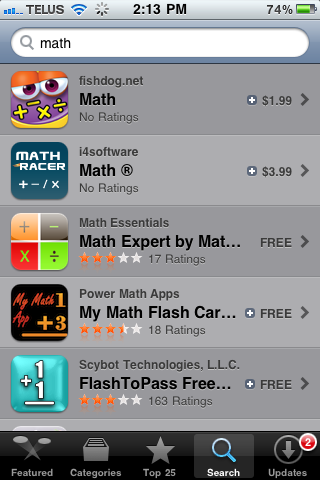A couple of weeks after I posted some resources for parents looking to teach their young kids about math, Maria Droujkova has introduced the Moebius Noodles project which is intended to build a book and a support site for parents who would like some support teaching math to their children.
In her own words, the reason she started this project is:
- There are very few materials and no community support for smart math for babies and toddlers. Just try to find anything that is not about counting or simple shapes! Mathy parents create opportunities for their own kids, of course. But without support and resources, it’s very hard even for the rocket scientist mothers and fathers. We want to change that!
- Peer-to-peer learning, research and development groups in mathematics education need a process for crowd-funding their projects. We are the trailblazers for other fabulous communities that want to make open and free math materials with the support of their members, such as the group developing materials for learning mathematics through music, the play math network, and the math circle problem-solving depository project.
- We are creating OERs – Open Educational Materials. It means people can access, use, modify and share the materials for free [emphasis mine]. Imagine the project you support translated into any language in the world, and used freely to support young kids everywhere!
- The activities are sustainable in many senses. You can use everyday household items and recycle materials for Moebius Noodles games.
- If you are a parent or teacher who loves arts and crafts but is afraid of math, the book will help you teach your kids mathematics through your talents. If you are a math or science geek who envies other families always doing neat art projects, the arts-math bridge in the book goes both ways!
You can donate to her cause by clicking on the image below. At the time I posted this entry, Maria is about $4000 away from her goal.


